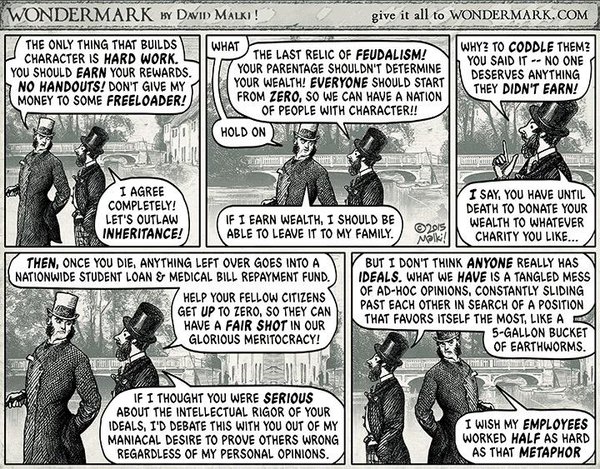Anthropologist David Graeber did his doctoral work on Madagascar, the 2nd to last large landmass to become permanently inhabited by humans, and gave this great talk about what we can learn about the 'state of nature' from it. He contends that highly unequal societies, eg those with slaves, are unstable & when they dissolve cultural tactics emerge to resist a return to that - that what we see Native American cultures is not simply human 'instincts' manifesting, but the results of long tussles between more & less violent & hierarchial groups, largely settled in the absence of new technologies entering the scene, in favour of minimal hierarchy.
Exactly what is meant by hierarchy is crucial. Graeber says in Native American cultures being a chief meant working harder, getting up earlier every day & doing more, but above all, being pursuasive. So is that hierarchy?
Gobekli Tepe is thought to be the first known megalithic structure, & built by hunter-gatherers - archaeologists suggest it implies there must have been a hierarchy there, to build it. I suspect that argument relates to their definitions, and things like division of labour.
Economists Pickett & Wilkinson wrote 'The Spirit Level: Why More Equal Societies Almost Always Do Better' and 'The Inner Level: How More Equal Societies Reduce Stress, Restore Sanity and Improve Everyone's Well-Being'. They make a detailed numbers-based argument about the corrosive effects of inequality, relating it to things like crime & security costs, and multiple measures of internal wellbeing, include haming the wealthy & elite where inequality is still also a net-negative (Markovits analyses that specific issue in more depth in The Meritocracy Trap).
How we perceive human nature nature will have a big impact. Hobbes who lived through the English Civil war, saw a tyrant as essential to stop 'the war of all against all'. Rousseau saw the state of nature as the ideal, and so city living & it's discontents as intrinsically corrupting - he got to live a largely charmed life avoiding consequences of his actions though, like by sending more than half a dozen illegitimate children to the orphanage.
Jonathan Haidt's research has shown links between threat-perception during key formative years, teens to about 25 when our prefrontal cortex is being fine-tuned, to attitudes that shape our whole lives. The schism between Baby Boomers & the World War generation is particularly notable - & Boomer optimism went with the greatest increase in equality ever in human history.
The Dunbar Number indicates humans evolved for social group sizes of around 150. This is supported by archeology, the Domesday Book village sizes, the number of faces we can remember, & other indications. Cities are very modern in evolutionary terms, linked directly to animal domestications & emergence of writing. Very little genetic change has happened in that time. Their utility seems to be about the memetic. Our eusociality, our hive-like behaviour, seems to link to this scale, with reproduction inequality of that order.
Chimpanzees do not have single strongest individuals, like gorillas. Males have to firm a coalition, with substantial grooming services & preferential treatment of supporters. Bonobos, our closest relatives, have greatly extended social grooming to diffuse tensions, they have frequent sex. Humans are not that like either group. Was discussing recently the role of humour in diffusing tensions, allowing feelings to be expressed and tensions relieved in a context defined as play, & this seems like it might be an under-recognised human advantage - 'good sense of humour' was the top requested trait in posting of romance adverts in singles sections of newspapers, suggesting after physical traits it is of uniquely high desirability.
Anarcho-syndicalism in Spanish Civil War-era Catalonia was very successful in running the economy and militarily, Franco arguably only won because of Nazi support.
I like this comic strip framing very very much:

Define your terms, pick your discourse, state what you wish to determine specifically, to reach a settled answer. But I hope here are some alternative perspectives you might not have encountered that play against the seeming 'default' of Jordan Peterson-esque appeals-to-nature (lobsters do it so we must), or Randian championing of the status quo untethered from any research whatsoever.

